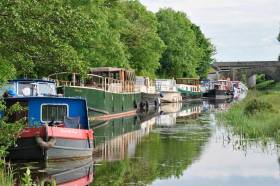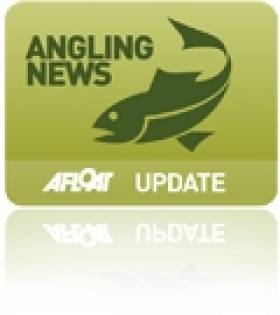Displaying items by tag: permits
Waterways Ireland wishes to remind all masters and owners of vessels on the Grand Canal, Royal Canal and Barrow Navigation that all canal permits expire on Wednesday 1 November and must be renewed.
Permits can be renewed online at the Waterways Ireland website. Vessels with no permit as required by Bye Law 6(8) will be removed as operationally convenient, the cross-border body for Ireland’s inland waterways adds.
Waterways Ireland reminds all masters and owners of vessels on the Grand Canal, Royal Canal, Barrow Line and Barrow Navigation that all canal permits expired on 1 November 2022 and must be renewed for 2023.
Permits can be renewed online at the Waterways Ireland website HERE.
The cross-border body for Ireland’s inland waterways emphasises that vessels with no permit, as required by Bye Law 6(8) of the Canals Act, will be “removed as operationally convenient”.
Waterways Ireland reminds all masters and owners of vessels on the Grand Canal, Royal Canal and Barrow Navigation that all canal permits expire on Tuesday 1 November and must be renewed for 2022/23.
Permits can be renewed online at the Waterways Ireland website HERE.
The cross-border body for Ireland’s inland waterways emphasises that vessels with no permit, as required by Bye Law 6(8) of the Canals Act, will be “removed as operationally convenient”.
Waterways Ireland Reminds Owners to Renew Canal Permits or Risk Losing Their Vessels
Waterways Ireland has issued a reminder to all masters and owners of vessels that all canal permits expired on 1 November and must now be renewed.
Permits can be renewed online at the Waterways Ireland website.
The cross-border body for Ireland’s inland waterways warns that vessels not compliant with the Canal Act 1986 (Bye-Laws) 1988, such as
- Vessels with no permit, Bye Law 6(8);
- Vessels non-attended and apparently abandoned, Bye Law 6(8);
- Vessels doubled moored and causing obstruction (sunk), Bye Law 27 (3); and
- Vessels deemed to be/likely to cause a hazard to navigation, Bye Law 33(3)
will be removed from the Grand Canal, Royal Canal and Barrow Navigation. Removed vessels may then be subsequently disposed of in accordance with Bye Law 34(2).
As previously reported on Afloat.ie, last year saw a big jump in the number of boat removals from the inland waterways under a programme to remove abandoned, sunken and “non-compliant” boats and structures from the canals network.
Online Applications For Mooring & Passage Canal Permits Now Open
#InlandWaters - Combined mooring and passage permits and extended mooring permits for the Grand Canal, Royal Canal and Barrow Navigation for the 2019 season are now available online from Waterways Ireland.
All permits will run until Thursday 31 October, with annual renewal on 1 November each year. Applications require a photo of the vessel and a copy of its insurance (third party minimum).
Applicants can decide to print their own permit or have a hard copy sent by post. Submitted applications will receive an acknowledgement email, and once approved, an online link will be emailed for payment.
Questions regarding the application process can be forwarded to the inspectorate at [email protected] or by phone to 09064 35690 (9am-12pm Monday to Friday).
Kerry Makes Moves to Promote Angling
A recent series of workshops was hosted in Kerry aimed at training angling guides in order to develop the sport in the Kingdom.
The Kerryman reports that 15 potential guides participated in the six-day programme on the River Laune, led by world champion fly-caster Glenda Powell.
Interested individuals were given an introduction to the world of angling guides, covering topics from fishing methods to health and safety, boat handling and teaching fly-casting.
The scheme will soon be supplemented by an online booking system for permits for anyone interested in game angling in Kerry.






























































